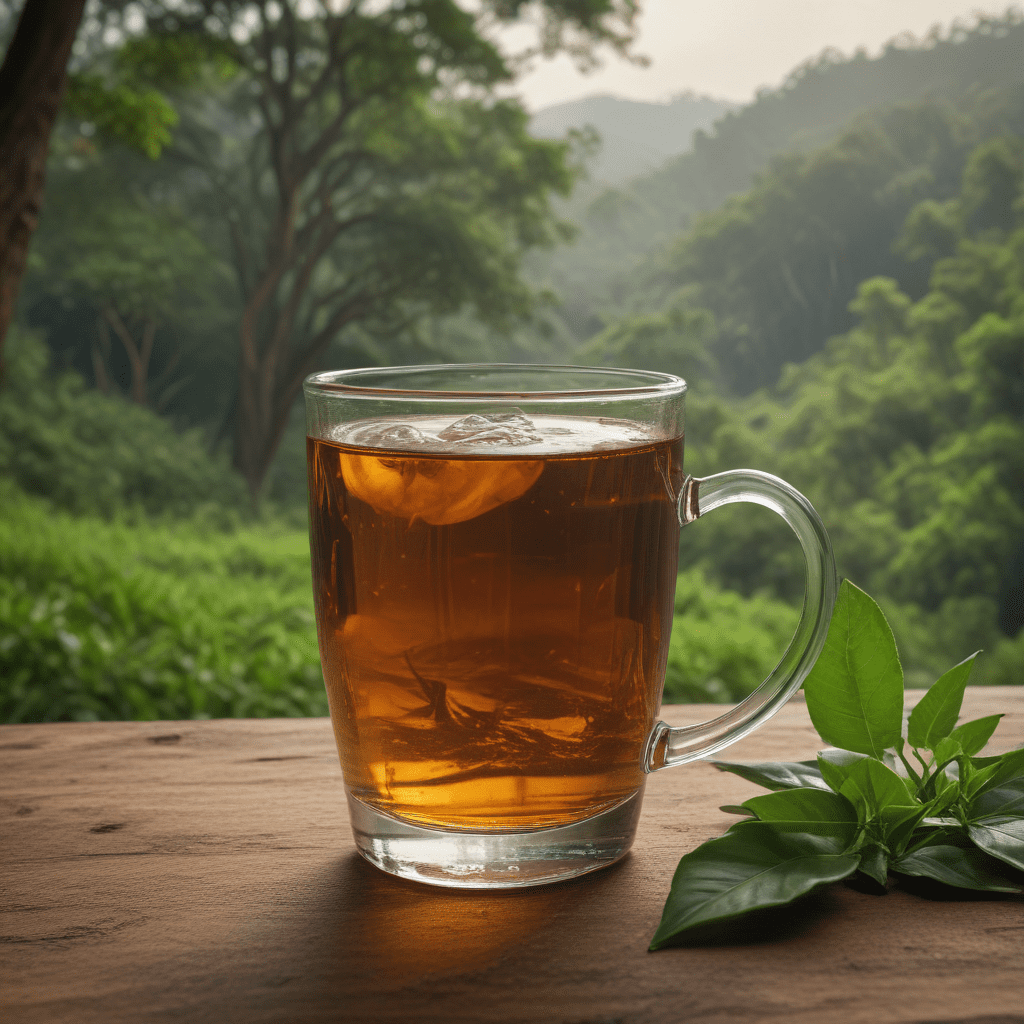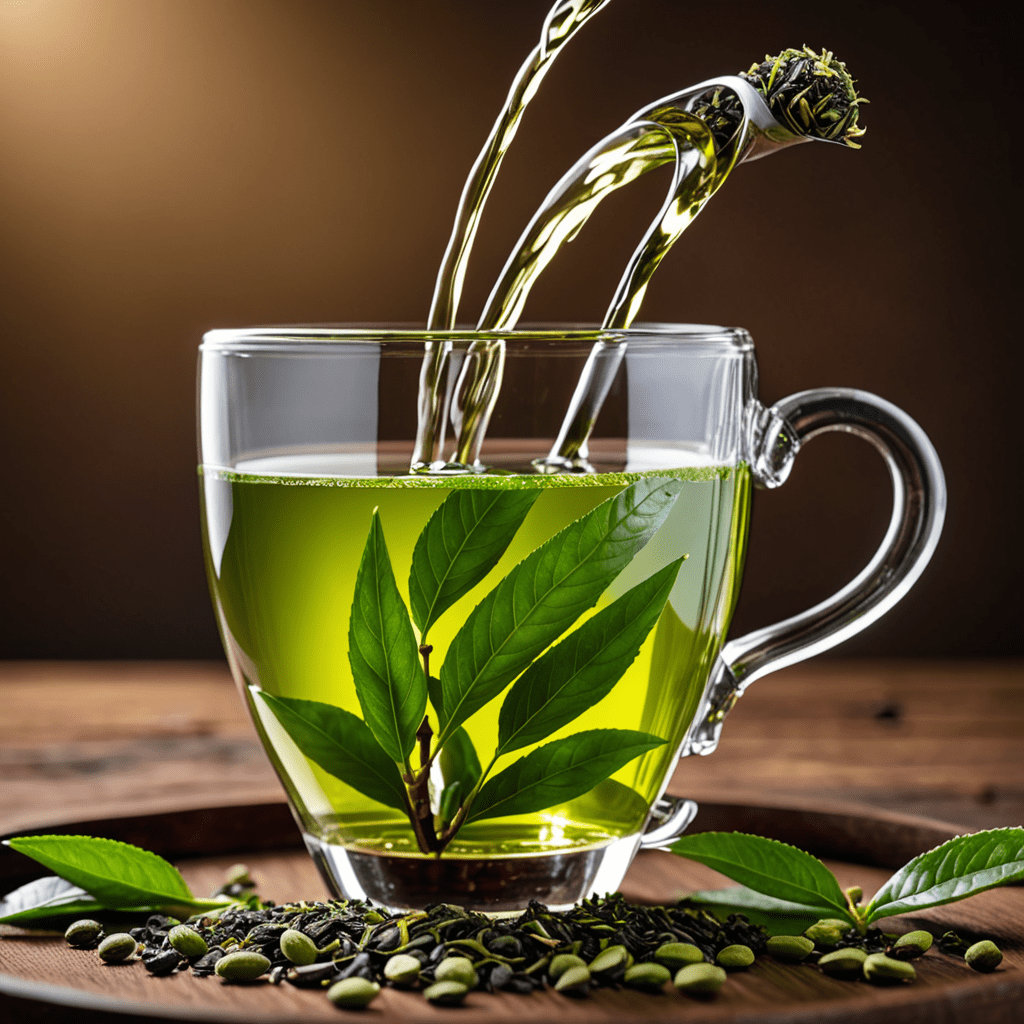I. Introduction to Assam Tea: A Legacy of Excellence
Nestled in the verdant valleys of northeastern India, Assam is renowned as the heartland of tea production in the country. The region's rich history of tea cultivation dates back to the 19th century, when British planters introduced tea bushes to the fertile soil of Assam. Over the years, Assam tea has established a reputation for its distinctive flavor, aroma, and health benefits, making it a beloved beverage worldwide.
II. The Unique Terroir: A symphony of climate and soil
Assam's unique terroir plays a pivotal role in the exceptional quality of its tea. The region experiences a subtropical climate with ample rainfall, high humidity, and warm temperatures throughout the year. These conditions provide an ideal environment for tea bushes to thrive, producing leaves with a robust and full-bodied character. The Brahmaputra River Valley, where most of Assam's tea is grown, boasts alluvial soil rich in organic matter, providing essential nutrients for the tea plants.
III. Varieties of Assam Tea: A spectrum of flavors
Assam tea encompasses a diverse range of varieties, each with its own distinct flavor profile. CTC (crush, tear, curl) teas, known for their bold and malty taste, are widely used in traditional Indian milk tea preparations. Orthodox teas, produced using traditional methods, exhibit a more delicate and nuanced flavor with floral and fruity notes. Single-estate teas, sourced from specific tea gardens, offer a unique terroir-driven experience, showcasing the subtle variations in flavor and aroma from different regions of Assam.
IV. The Tea Industry in Assam: A lifeline for the region
The tea industry occupies a central position in the economic and social fabric of Assam. It provides direct and indirect employment to millions of people, contributing significantly to the state's economy. Tea plantations have acted as catalysts for infrastructure development in rural areas, providing access to schools, hospitals, and other essential services for workers and their families. The industry's commitment to sustainability and ethical practices has further enhanced its positive impact on the region.
V. Sustainable Practices: Nurturing the heartland
Assam's tea industry has embraced sustainable practices to protect the environment and ensure the longevity of tea production. Many tea estates have adopted organic farming techniques, minimizing the use of pesticides and fertilizers to preserve the natural ecosystem. Water conservation measures are implemented to reduce the industry's environmental footprint. Sustainable practices not only protect the environment but also enhance the quality and flavor of Assam tea, ensuring its continued excellence for generations to come.
VI. Health Benefits: A cup of wellness
Assam tea is not only a delicious beverage but also a source of various health benefits attributed to its rich antioxidant content. Theaflavins and thearubigins, compounds found in black tea, have been shown to possess antioxidant, anti-inflammatory, and antimicrobial properties. Studies suggest that regular consumption of Assam tea may support heart health by lowering cholesterol levels and improving blood flow. Its caffeine content provides a gentle boost of energy, while L-theanine, an amino acid present in tea, promotes relaxation and focus.
VII. Cultural Significance: Assam tea in Assamese society
Assam tea is deeply intertwined with the cultural fabric of Assamese society. Known affectionately as "Boroxai," or "big tea," it holds a special place in Assamese cuisine and hospitality. The traditional Assamese breakfast consists of a cup of Assam tea accompanied by pithas, rice cakes made from sticky rice. Tea stalls, known as "tokas," are ubiquitous in Assam, serving as social hubs where people gather to enjoy a cup of tea and engage in lively conversations.
VIII. Tourism and Tea Experiences: A journey to the source
Assam's tea gardens offer an immersive experience for tea enthusiasts and tourists alike. Visitors can embark on guided tours of tea plantations, witness the tea-making process firsthand, and indulge in tea tastings. Many tea estates provide accommodations, allowing guests to stay amidst the serene and picturesque landscapes of Assam's tea heartland. The region also boasts tea museums and heritage trails, showcasing the rich history and cultural significance of Assam tea.
IX. Assam Tea's Global Presence: A taste of India
Assam tea has gained widespread recognition beyond India's borders, becoming a beloved beverage in countries worldwide. Its bold and robust flavor has made it a staple in tea blends and specialty teas. Assam tea is often blended with other teas, such as Darjeeling, to create unique and flavorful tea experiences. The global popularity of Assam tea is a testament to its exceptional quality and the skill of Assamese tea artisans.
X. The Future of Assam Tea: Preserving a national treasure
The future of Assam tea looks promising as the industry continues to prioritize sustainability and innovation. Research and development initiatives are focused on improving tea yields, enhancing quality, and developing new tea varieties. The adoption of sustainable practices ensures the longevity of tea production while preserving the unique terroir of Assam. Assam tea's global presence is expected to grow as consumers worldwide seek out authentic and high-quality tea experiences.
FAQ
What is the difference between Assam CTC and orthodox tea?
CTC (crush, tear, curl) tea is produced using a mechanical process that crushes, tears, and curls the tea leaves, resulting in a bolder and stronger flavor. Orthodox tea, on the other hand, is produced using traditional methods that involve hand-plucking the tea leaves and allowing them to oxidize fully, resulting in a more delicate and nuanced flavor.
How can I brew the perfect cup of Assam tea?
To brew the perfect cup of Assam tea, use good-quality tea leaves and freshly drawn water. Add one teaspoon of tea leaves per cup to a teapot or teacup. Pour freshly boiled water over the leaves and let it steep for 3-5 minutes, depending on your desired strength. Strain and enjoy your freshly brewed cup of Assam tea.
Is Assam tea good for weight loss?
While Assam tea contains caffeine, which may boost metabolism, it is not a miracle weight loss solution. However, it can be a healthier alternative to sugary drinks and may aid in weight management when consumed as part of a balanced diet and exercise program.

